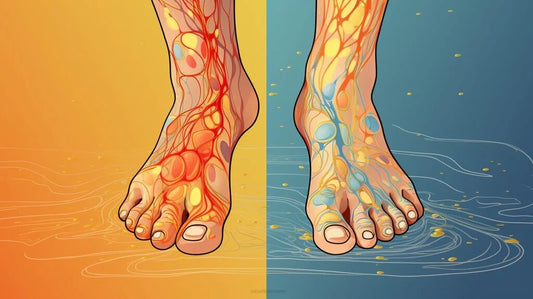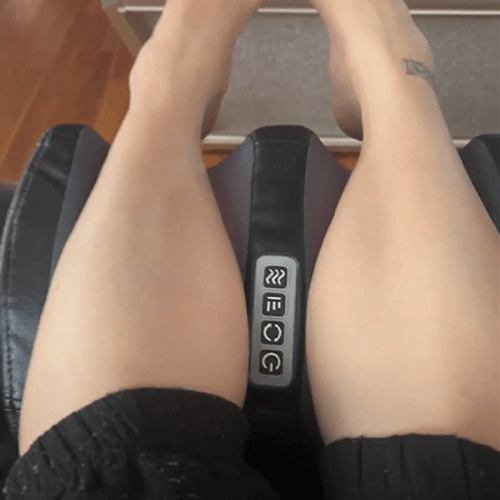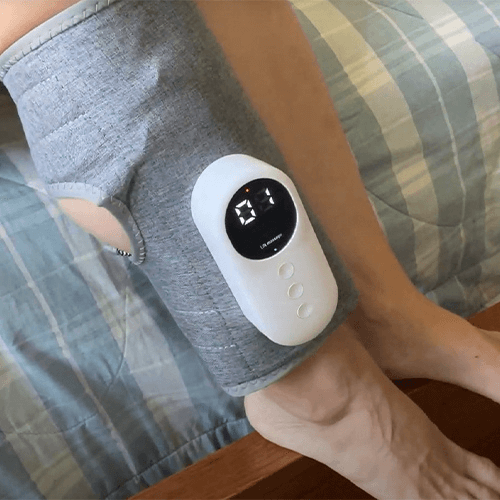If you’ve been taking pills for anxiety, depression, blood pressure, or cholesterol… you might think you’re simply managing your health.
But what if those very medications are secretly attacking your nerves?
Burning, tingling, or numbness in your hands and feet isn’t always “just aging.”
In many cases, it’s a red flag that the drugs you rely on are harming your nervous system.
And here’s the scary part: most people have no idea this is happening until the damage is well underway.
The good news? Once you know which medications are the biggest culprits—and how to protect yourself—you can take back control of your nerve health starting today.
The Medications Trap
Nearly 90% of adults over 65 are on prescription drugs—and many take five, ten, or even more every single day.
Doctors call this “polypharmacy.” Patients call it “just staying healthy.”
But the truth is, this prescription pile-up often creates a dangerous cycle: one pill causes side effects, another is prescribed to manage them, and before long, your nerves are caught in the crossfire.
The result? Worsening neuropathy that no one warned you about.

The 4 Types of Medications That Can Harm Your Nerves
Not all medications are harmless. Some are directly linked to peripheral neuropathy. Let’s uncover the four worst offenders.
1. Anti-Anxiety Medications
These drugs aren’t just prescribed for anxiety—they’re often handed out for sleep issues, too. But long-term use comes at a cost: nerve damage.
Examples: Ambien, Buspar, Diazepam, Clonazepam, Xanax, Lorazepam
2. Antidepressants
Antidepressant use has exploded since the 1980s. While they can stabilize mood, many also sabotage nerve health.
Examples: Prozac, Celexa, Cipralex, Mirtazapine, Effexor, Cymbalta
⚠️ A special warning about Cymbalta:
Ironically, Cymbalta is often prescribed for neuropathy itself—even though research shows it can make nerve damage worse.
Stopping this drug is notoriously difficult due to withdrawal symptoms called “brain zaps”—sudden, electric shock-like jolts in the brain.
Getting off Cymbalta requires an extremely slow, careful taper under a doctor’s supervision.
3. Calcium Channel Blockers (Blood Pressure Drugs)
This common class of blood pressure medications is one of the most damaging to nerve health.
Examples: Amlodipine, Verapamil, Nifedipine, Diltiazem
Better options: ACE inhibitors, beta blockers, and ARBs
4. Statins (Cholesterol-Lowering Drugs)
Over 200 million people worldwide take statins. But few realize these drugs are linked to severe side effects—including peripheral neuropathy.
Examples: Atorvastatin, Simvastatin, Rosuvastatin, Lovastatin
Risks include:
-
Memory loss and amnesia
-
Increased risk of diabetes
-
CoQ10 depletion (essential for healthy nerves)
-
Possible links to certain cancers
Safer alternatives: Lifestyle changes (like intermittent fasting, ketogenic eating, and exercise) can dramatically lower cholesterol.
Non-statin options like PCSK9 inhibitors and fibric acid derivatives are also available.
What You Can Do Right Now
If you’re worried your medications might be fueling your neuropathy, here are four steps to take:
-
Don’t quit cold turkey. Stopping on your own can be dangerous. Always consult your doctor first.
-
Ask about alternatives. Safer medications are out there—demand a discussion.
-
Support your nerves naturally. Nutrition, exercise, and circulation-boosting habits make a huge difference.
-
Work with the right provider. Functional medicine doctors and naturopaths focus on healing—not just symptom control.
The Bottom Line
Neuropathy isn’t just random pain or tingling. It’s a warning signal that your nerves are under attack—and sometimes, the attack comes from your own medicine cabinet.
But knowledge is power. By understanding which drugs put your nerves at risk and exploring safer paths, you can protect your health, reclaim your energy, and even reverse some of the damage.
👉 Don’t keep this to yourself. Share it with someone who needs to know—and take the first step toward healthier nerves today.








